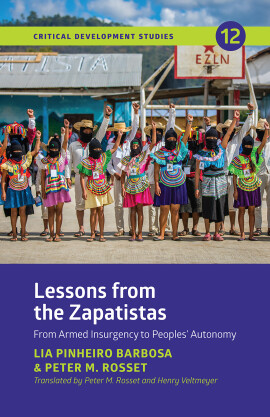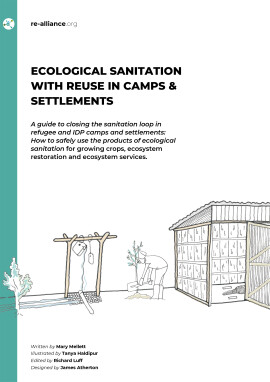
Addressing Conflict, COVID, and Climate Change
A Multisectoral Approach to Integrated WASH Programming
Marielle Snel, Nikolas Sorensen
Humanitarian crises are growing in length and complexity due to external destabilising pressures including conflict, COVID, and climate change, with the average length of refugee situations now exceeding twenty years. Until now, there has not been any specific WASH publication of this kind that reflects on these fundamental external factors that will play a vital role in the delivery of WASH services over the humanitarian-development divided within the context of fundamental sub-sectors. In their second insightful book on this important topic, Marielle Snel and Nik Sorensen call for humanitarian and development WASH professionals to work together in a more coordinated manner to develop more effective humanitarian WASH programming that keeps long-term development goals in mind.
In this book, the authors bring together experts from across the humanitarian/development fields, with a focus on the humanitarian-development-peace nexus and a multi-sectoral response to connecting humanitarian and development sectors as an innovative answer to bridging these challenges. Contributors reference case studies to look more closely at ways each sub-field could better integrate with WASH programming. There is no one size fits all solution to an integrated humanitarian-development response. However, the authors and contributors in this book provide deeper insights into the “how” question underlying integrated WASH programming.
This work will be of interest not only to professionals working in the humanitarian and development WASH sector, but also to others across the humanitarian, development, and peace sectors ranging from government officials to managers working directly or indirectly around WASH.
Published: 2023
Pages: 204
eBook: 9781788532235
Paperback: 9781788532228
Hardback: 9781788532273
In this book, the authors bring together experts from across the humanitarian/development fields, with a focus on the humanitarian-development-peace nexus and a multi-sectoral response to connecting humanitarian and development sectors as an innovative answer to bridging these challenges. Contributors reference case studies to look more closely at ways each sub-field could better integrate with WASH programming. There is no one size fits all solution to an integrated humanitarian-development response. However, the authors and contributors in this book provide deeper insights into the “how” question underlying integrated WASH programming.
This work will be of interest not only to professionals working in the humanitarian and development WASH sector, but also to others across the humanitarian, development, and peace sectors ranging from government officials to managers working directly or indirectly around WASH.
| List of abbreviations | |||
|---|---|---|---|
| Introduction | |||
| Marïelle Snel and Nikolas Sorensen | |||
| Chapter 1: Integrated WASH narrative literature review: the 3Cs and Intersectoral Coordination | |||
| Marley P. Gibbons, Cristina Mena-Lander, and Syed Yasir Ahmad Khan | |||
| Chapter 2: A WASH framework to address conflict, COVID-19, and climate change: leveraging the humanitarian– development–peace nexus | |||
| Tim Grieve | |||
| Chapter 3: Integrating WASH with health in humanitarian settings | |||
| Nikolas Sorensen and Marïelle Snel | |||
| Chapter 4: WASH–nutrition integration: for vulnerable populations affected by conflict, climate change and the COVID-19 pandemic | |||
| Jovana Dodos and Bram Riems | |||
| Chapter 5: Integrated WASH and Shelter | |||
| Susannah Webb | |||
| Chapter 6: Integrated WASH and Education | |||
| Anne Corwith and Erin Sorensen | |||
| Chapter 7: Child protection and WASH integration | |||
| Allison Jeffery | |||
| Chapter 8: Focusing on the future: integration of WASH around conflict, COVID-19, and climate change | |||
| Marïelle Snel and Nikolas Sorensen |
'It is hard to do WASH well, especially in humanitarian crises that have significant aspects of insecurity, conflict, fragility, and environmental and public health dimensions. To do so in ways that also acknowledge and address the multiple needs of affected populations is even harder. In this book, the authors tackle these various and simultaneous challenges head-on, in an attempt to draw learning from existing case studies and so inform better practices in future. Readers will find a wealth of insight and analysis in this book, all focused on bringing together the sectors and actors that together can more effectively address the needs of those caught up in humanitarian crises.'
Richard Carter, researcher and consultant in water and sanitation, groundwater development and agricultural water management
‘A major challenge in common for all in WASH and emergency response is their intersectoral nature and the apparent ineffectiveness of the usual siloed approaches. This book, a compilation of authoritative and practical analyses and recommendations, is a valuable resource for all working within humanitarian and developmental contexts. The case studies and lessons learnt provide valuable evidence on which to build short-term effectiveness and long-term resilience and sustainability.’
Sally Sutton, SWL Consultants





